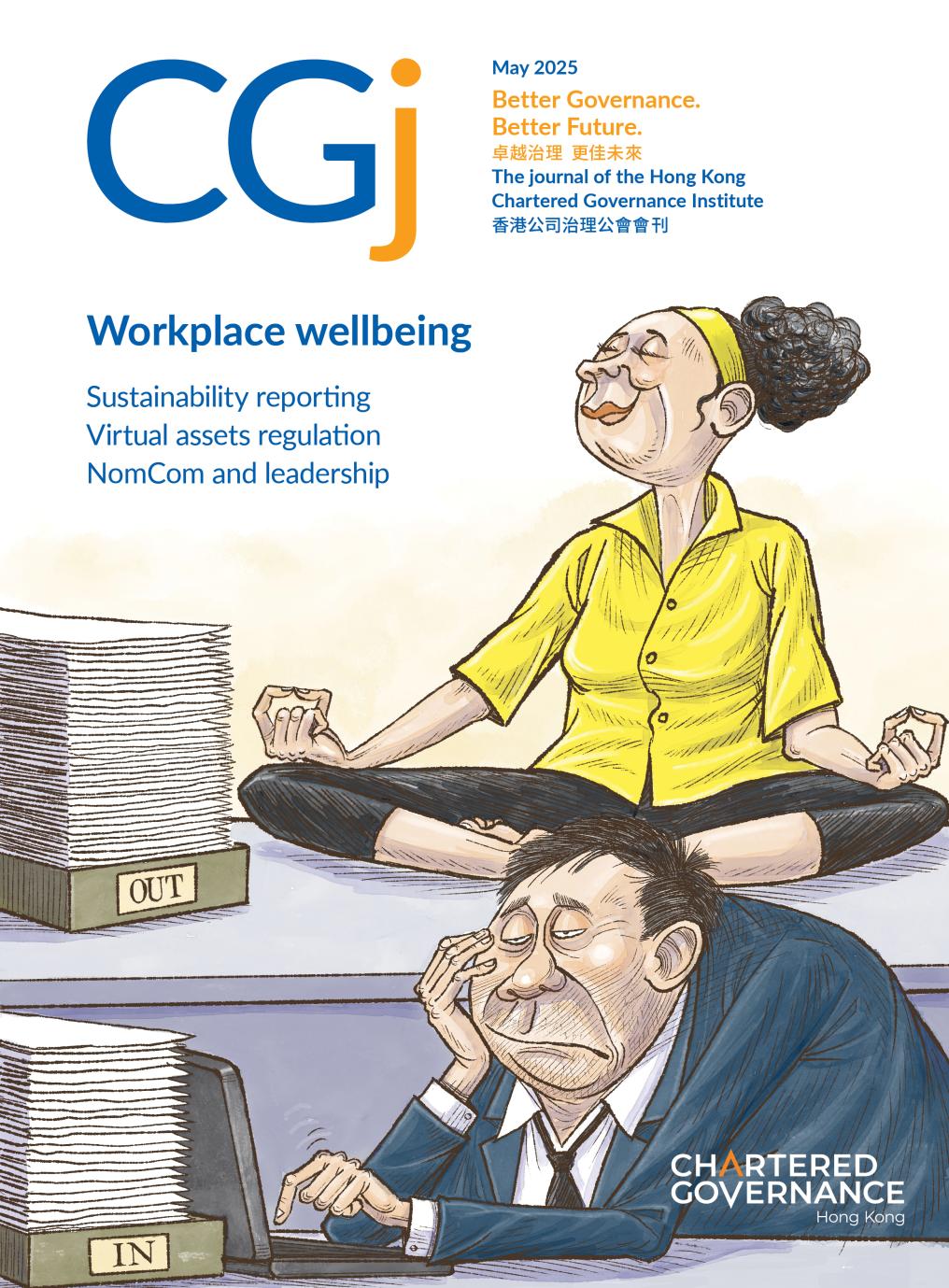
Professional development update
Before discussing what lies ahead in this edition of CGj, I would like to flag up the imminent arrival of this year’s Annual Corporate and Regulatory Update (ACRU). Our 26th ACRU will be held on 6 June and will be your chance to hear directly from regulatory bodies and government authorities on all of the top issues in governance and compliance.
As you would expect, technology-related issues will be among the themes discussed at this year’s event. In this context, this year will mark the debut appearance of the Digital Policy Office (DPO), set up by the HKSAR Government in July 2024. The DPO will be a very welcome addition to the ACRU lineup, in particular for its expertise on the increasing relevance of technology to governance practice. As usual, this year’s ACRU will be held both online and at the Hong Kong Convention and Exhibition Centre. If you are intending to participate in person, do book early as seats often sell out well before the booking deadline.
Turning to this month’s journal, our theme is workplace wellbeing and mental health. Before the Covid-19 pandemic, this topic remained largely under the radar for many companies in Hong Kong, but the impact of the pandemic on both frontline workers and those adapting to remote work environments has led to an increased interest in this area.
This month’s cover story has a wealth of information on what organisations can do to improve workplace wellbeing and the significant returns that can come from making this a priority – including reduced absenteeism and better employee engagement. It also highlights the important contribution governance professionals can make, particularly in our work with boards and leadership teams to ensure that there is commitment from the top for the integration of workplace wellbeing considerations into policies and practices.
Before I conclude, I would also like to flag up for your attention this month’s excellent In Conversation article. As readers of this journal will know, sustainability governance has become a major focus of our Institute’s training, advocacy and thought leadership work in recent years. Our Sustainability Governance Academy (Academy) has been an integral part of that, and this month readers have the opportunity to hear from one of our Academy Advisory Board members – Ernest Lee FCG HKFCG(PE), Institute Immediate Past President and Technical Partner, Deloitte China – on the implications for businesses in Hong Kong of the newly issued HKFRS Sustainability Disclosure Standards (HKFRS S1 and S2).
Preparing for the implementation of the new standards, which will be phased in over the next few years, will be a high priority for governance professionals. If you haven’t already done so, I encourage you to consider completing our ESG Reporting Certification Course and joining our Academy. This will not only provide you with a networking platform to share expertise with other practitioners, but will also give you access to a wide variety of relevant resources. Indeed, a video Q&A with Ernest addressing the implementation timelines and incoming compliance requirements relevant to HKFRS S1 and S2 is now available on the Academy website (https://minisite.hkcgi.org.hk/academy).
To conclude, I look forward to joining you at our upcoming ACRU seminar. The secret of this seminar’s success, and that of our Academy, is in large part due to the active participation and engagement of our Institute members and wider professional community.


